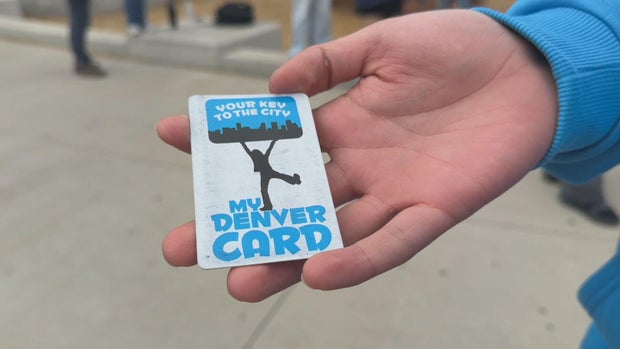Denver, CO
Denver proposal targets soda and sugary drinks in kids’ meals at restaurants

A new regulation proposed in the Denver City Council would mandate that restaurants list just two drink options on their menus as part of combo meals for children: Water or milk?
The proposal aims to sideline sodas and sugary drinks and help drive healthier dietary choices for young Denverites at a time when health care professionals say rates of chronic illness, like diabetes, obesity and fatty liver disease, are increasing in children.
As with other recent City Council measures aimed at addressing societal ills, its members are opting for the approach of steering consumer choice by limiting the options advertised. Another Denver ordinance passed in 2021 to cut down on waste says take-out restaurants can provide single-use utensils and condiment packets to customers only upon request.
Councilman Chris Hinds, one of the sponsors of the new legislation, said the ordinance would not prevent children or their caretakers from ordering another beverage available on a restaurant’s menu. The goal, he said, is to make sure that drinks without added sugars are put in front of children before they ask for a soda or sugary juice.
“So the idea is a bit of nudge — nudging people into behaving in a way that’s best for the planet,” Hinds said during Wednesday’s meeting of the council’s Business, Arts, Workforce, Climate and Aviation Services Committee, which he chairs.
The committee voted unanimously to move the ordinance on for consideration by the entire council in coming weeks. If passed, the regulation would apply to every dining establishment in the city, from fast food restaurants to diners and fancier eateries.
Children’s meals could include water, milk or a milk substitute, such as soy or oat milk. The mandate would build on voluntary moves by some fast-food chains, including Burger King and McDonald’s, to drop at least fountain sodas from kids’ meals, though often juice is still offered.
A 2019 survey found that roughly 400 restaurants in Denver offered combo kids’ meals, said Andrea Pascual, a public health planner focused on chronic disease prevention at Denver Health. Of those, more than half were chains. Pascual led the presentation about the ordinance at Wednesday’s meeting.
The proposed change has a long list of backers, including medical professionals and local neighborhood associations.
Some supporters point to a racial equity element in limiting the accessibility of sodas and other sugar-laden drinks, which advocates say are disproportionately marketed to communities and children of color.
“As you know, communities of color have a higher risk of diabetes. And when I go to these communities, they always have some kind of testimony regarding a family member or themselves or a loved one who has diabetes,” Giannina Estrada said through a Spanish translator.
Estrada was one of several people who spoke on behalf of ViVe Wellness, a nonprofit dedicated to providing health-focused education and programming to low-income families in Denver.
The Colorado Restaurant Association has taken a neutral position on the proposed ordinance, said Colin Larson, the organization’s director of government affairs.
He said the association was grateful for the long lead time built into the bill. Restaurants would have until July 1, 2025, to change their menus. Financial support also would be offered to offset the costs of updated marketing materials.
According to the presentation, restaurants would be able to request as much as $2,000 for those purposes.
Denver isn’t the first city in Colorado to look at regulating the choices that restaurants present to consumers in hopes of improving health outcomes for children.
Lafayette banned the advertising of sugary drinks on kids’ menus in 2017. Longmont and Golden followed suit in 2022. In Longmont, restaurants can face fines up to $500 if they repeatedly violate the ordinance.
Three states — California, Delaware and Hawaii — require restaurants make water and milk the default offerings on kids’ menus.
Councilwoman Serena Gonzales-Guitterez is co-sponsoring the legislation. She is a mother of three and said she would welcome help in instilling healthy dietary habits by limiting options in kids’ meals.
“They’re the age now where of course they can read the menu and they can say, ‘I know this place has pop or soda. I know that they have this juice that I want,’ ” she said. “But when they were younger, I could definitely see the value in, as a parent, looking at a menu and saying, ‘Well, here’s what our options are.’ ”
Stay up-to-date with Colorado Politics by signing up for our weekly newsletter, The Spot.

Denver, CO
Richard Jackson Obituary | The Denver Post

Richard Jackson
OBITUARY
Richard E. Jackson, affectionately called “Jackson”, was beloved by his family, friends and colleagues. He passed peacefully surrounded by his wife and children. He was receiving exceptional medical care at City Park Healthcare and Rehabilitation Center at the time of his death. A devout Catholic, he received his Last Rights from Fr. John Ludanha of Blessed Sacrament Church and School.
He earned a Bachelor’s degree in Economics from Gannon University and a Master’s degree in Education from the George Washington University. For over 30 years, he was employed by the federal government, mostly as an analyst for the Social Security Administration (SSA). Other positions he held were: Beneficiary Services Specialist, Division of Medicare, Health Care Financing Administration; Public Affairs Specialist for SSA; and Management Analyst SSA Office of Management and Budget. After he retired, he was a consultant to the State of Colorado Center for Medicare and Medicaid Services.
Jackson was a devoted father, step-father and foster father. He would take over the kitchen and cook spaghetti and meatballs, a family favorite, and then transport children to gymnastics practice and friends’ houses. He had a remarkable sense of humor, bringing joy and laughter to his home. He adored his wife and would leave her weekly love notes in drawers around the house. Exercising at the Denver Athletic Club, taking walks with his wife, and reading the New York Times were three of his favorite activities. He was born in Westfield, New York. His parents were Canadian immigrants. He was the youngest of eight children.
He is survived by his wife, Joycee Kennedy; his children – Kimberly Jackson (Mike Estes), Dawn Jennings (Ed Jennings) and Kevin Jackson; his stepchildren – Cary Kennedy (Saurabh Mangalik) and Jody Kennedy (Christopher Thompson); his grandchildren – Elizabeth, Chase and Drew; his step grandchildren – Kadin, Kyra, Bryce and Sena; and his first wife Madonna Smyth.
Services will be held at Blessed Sacrament Church – the time and day to be announced.
Denver, CO
Students push for statewide

Students from across the Denver metro are heading to the state Capitol to push for free after-school opportunities statewide.
The proposal would create a “My Colorado Card” program, giving students in sixth through 12th grades access to cultural, arts, recreational and extracurricular activities throughout the state.
For students like Itzael Garcia, Denver’s existing “My Denver Card” made a life-changing difference. He said having access to his local recreation center helped keep him safe.
“We had a couple stray bullets go through our living room window, we had people get shot in front of our house, different things like that,” Garcia said. “Over the summer, being able to go to the public pool, it provided a space for us to all come together. In a way, it acted as a protective factor.”
The My Denver Card provides youth ages 5 to 18 with free access to the zoo, museums and recreation centers. For some, like Garcia, it has served as a safe haven.
That impact is why students involved with the nonprofit FaithBridge helped craft legislation to expand a similar pilot program to communities outside Denver.
“We really just thought that inequity and really distinct opportunity deserts for students was really important for us to correct,” said Mai Travi a junior at Thomas Jefferson High School. Another student echoed that sentiment.
“We have a lot of students in the program that come from Aurora Public Schools, and they don’t have access to the same cultural facilities that we have living here; opportunities that really define our childhood experiences,” said Jack Baker, also a junior at Thomas Jefferson High School.
Vernon Jones, director of the nonprofit FaithBridge, said organizers are still working out logistics but hope to partner with counties across Colorado.
“This is a strategy to work for all of Colorado,” he said.
Denver school board member Marlene De La Rosa said the My Denver Card program has been impactful since its launch in 2013.
“For students that are on free and reduced lunch, the ‘My Denver Card’ can help scholarship some of their fees to participate in the youth sports at the recreation centers,” De La Rosa said.
Last year, 45,000 Denver youth had a card, accounting for 450,000 visits to recreation centers, outdoor pools and cultural facilities, she said.
“I think it is very beneficial,” De La Rosa said.
The Denver program is funded by city tax dollars approved by voters in 2012. The proposed statewide pilot would instead rely on donations and grants.
The bill has cleared its first committee but still needs approval from the full House and Senate.
Denver, CO
Tempers flare during another tightly contested matchup between Denver Nuggets, Oklahoma City Thunder

-

 World4 days ago
World4 days agoExclusive: DeepSeek withholds latest AI model from US chipmakers including Nvidia, sources say
-

 Massachusetts4 days ago
Massachusetts4 days agoMother and daughter injured in Taunton house explosion
-

 Montana1 week ago
Montana1 week ago2026 MHSA Montana Wrestling State Championship Brackets And Results – FloWrestling
-

 Denver, CO4 days ago
Denver, CO4 days ago10 acres charred, 5 injured in Thornton grass fire, evacuation orders lifted
-

 Louisiana7 days ago
Louisiana7 days agoWildfire near Gum Swamp Road in Livingston Parish now under control; more than 200 acres burned
-

 Technology1 week ago
Technology1 week agoYouTube TV billing scam emails are hitting inboxes
-

 Technology1 week ago
Technology1 week agoStellantis is in a crisis of its own making
-

 Politics1 week ago
Politics1 week agoOpenAI didn’t contact police despite employees flagging mass shooter’s concerning chatbot interactions: REPORT























